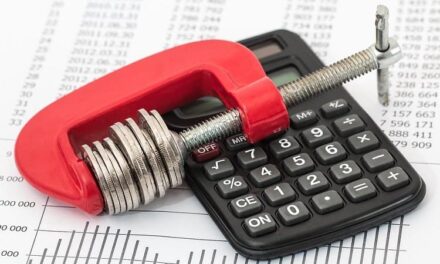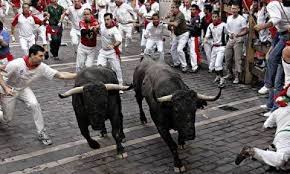What’s happening in the UK is following the trends in other European countries, but far from leading the way I think their actions will permeate through to various countries. The question — wherever you are from — appears to be the same; How are we going to come out of ‘Lockdown’ and what can we expect. I have said before that our industry will be the last to recover — IF it can! A YouGov report in the UK has published the following:
More than two-thirds of people will not feel comfortable returning to pubs and bars after the Coronavirus lockdown is lifted.
Slightly more people said they would feel comfortable going to coffee shops (36%) and restaurants (37%); however in both cases a clear majority said they would feel uncomfortable visiting such hospitality venues.
Other public places provoked less concern from the public, with garden centres causing the least concern but still seeing 25% of people say a visit would make them uncomfortable.
There was a noticeable gender divide from respondents, with men appearing to feel more confident about visiting public places than women.
An age difference was also seen, with 64% of 18- to 24-year-olds saying they would feel comfortable returning to clothing stores, compared to 46% of those aged from 50 to 64.
On Sunday cabinet minister Michael Gove said hospitality businesses would be among the last to re-open as the lockdown is gradually lifted.
Even when restrictions are eased, operators are anticipating significant social distancing guidelines, which would reduce the capacities of venues especially in restaurants, hotels and conference centres.
There are calls for the government to provide “continual support” for hospitality businesses, which will be unable to operate fully or reopen at all while social distancing restrictions remain in place.
Kate Nicholls, chief executive of UKHospitality, said: “Hospitality faces a unique problem, in that our businesses are built around socialising. When the lockdown ends, and even if social distancing measures are relaxed, many businesses will not be able to operate fully and some might not be able to open at all. Customers may also feel nervous about going out into a potentially crowded setting, too.
“Our sector needs to be a special case when it comes to the furlough scheme. We will not be able to go from zero to 100 overnight. The government must make sure it provides continual support for businesses in our sector, specifically the ability to keep staff furloughed where they need to.”
 The four-AA-starred, 109-bedroom Metropole Hotel & Spa in Llandrindod Wells, Powys, shared a stark photo on Twitter of one of the hotel’s event spaces last week. With social distancing in place, the room which normally fits 130 people could only seat 22. It described social distancing as “the next threat to our business”.
The four-AA-starred, 109-bedroom Metropole Hotel & Spa in Llandrindod Wells, Powys, shared a stark photo on Twitter of one of the hotel’s event spaces last week. With social distancing in place, the room which normally fits 130 people could only seat 22. It described social distancing as “the next threat to our business”.
Speaking to The Caterer, managing director Justin Baird-Murray pointed out that he calculated the room, which would normally bring in revenue of around £5,500 for an event, would only be bringing in about £880 on those numbers.
He emphasised the importance of retaining the government’s furlough scheme through to the end of social distancing, and not just when businesses can reopen.
“If places are open, but in effect they aren’t open to more than 25% of their capacity, then they only need 25% of their staff,” he said.
“So, the furlough scheme would have been in vain, because you can’t take on 100% of your staff for 25% of your business needs.
“We run on very thin margins, and once you take away the capacity to run at high occupancies, whether it be at your accommodation, your restaurants, your conferencing facilities, or your function rooms, then the whole business becomes a completely different thing and quite probably unviable. There’s also the issue of service – how exactly are people expected to serve with a social distancing of two metres? It isn’t clear and needs clarification.”
The All-Party Parliamentary Group for Hospitality and Tourism has launched an inquiry into what measures will be needed to support the two sectors to reopen and recover when government health advice allows.
The British Beer and Pub Association (BBPA) has said that pubs will need a minimum of three weeks’ notice for the lifting of the lockdown restrictions to allow them sufficient time to prepare to reopen.
London restaurateur Stevie Parle, who operates Pastaio in Soho and Palatino in Clerkenwell, said: “The worst scenario for us would be the government says we can reopen, the Job Retention Scheme stops, the financial support stops, but we have to have reduced capacity.
“If we don’t reopen to fully operational businesses and a public that is confident in visiting those businesses, then we will see huge numbers of closures. I operate restaurants with probably some of the highest rents in the world, which works because we have consumers in sufficient volume. But the idea that we could reduce capacity by 50% and still be viable is extremely unlikely.”
He called for “clear, specific guidance” from the government on when businesses will be able to reopen, what that will look like and what support will be available. Parle said that, while his sites could be back up to full capacity in “a couple of weeks” under normal operating procedures, any big operational changes to comply with social distancing, for example, would need more time and clear government guidelines.
Paul Askew, chef patron of the Art School in Liverpool, agreed that a minimum of two weeks’ notice would be required to enable them to re-launch with any government restrictions in place, but also raised concerns about the viability of operating with social distancing.
He said: “They’re suggesting a metre and a half or two metres between tables, so straightaway a lot of restaurants will have to take 40-50% of their tables out.”
Askew added that, if hospitality businesses are going to be some of the last to reopen, many will need further grants towards the end of the summer to keep them going.
(content courtesy of the Caterer and Hotelkeeper)











